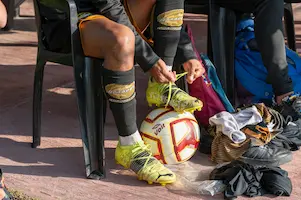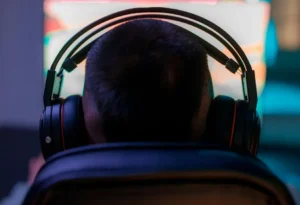Blisters, cramped toes, or slippery heels? Picking the right soccer cleats isn’t about brand – it’s about fit, feel, and field type. This beginner-friendly guide helps you choose cleats that actually fit your feet and your game.

Image: Pexels – Israwmx
CONTENTS
show
👣 Step 1: Know Your Foot Shape
Wide feet? Narrow arch? High instep? Start by checking your foot type. Brands like New Balance and Puma offer wider options, while Nike runs narrow. A snug fit is key, but not tight.
⚽ Step 2: Choose the Right Cleat Type for the Surface
Pick your cleats based on the surface you play on:
- FG (Firm Ground): Natural grass fields
- AG (Artificial Ground): Turf or synthetic pitches
- TF (Turf): Short rubber turf, indoor-type ground
- IC (Indoor): Smooth indoor courts or gyms
🎯 Pro Tip: Playing on the wrong surface with the wrong cleats causes discomfort and wears them out faster.
🧦 Step 3: Wear Soccer Socks When Trying Them On
Thicker, cushioned socks are standard for matches. Always try soccer cleats with real game socks to avoid buying a pair that feels right in-store but tight during play.
👉 Step 4: Focus on Lockdown, Not Just Length
Your toes should be close to the tip (¼ inch max), but heel lockdown is critical. Your foot shouldn’t slide around. Test by jogging or mimicking cuts to see how the cleat holds.
🔄 Step 5: Break Them in Gently
Wear cleats for short sessions first. Avoid jumping into a full match. Some materials (like leather) mold to your feet over time, while synthetic uppers tend to stay stiff.
💡 Tips for Buying the Right Beginner Cleats
- Start with mid-priced models – comfort > brand name
- Look for lace-up designs if you want better adjustment over your arch
- Return/exchange cleats if your heel slips or you feel pressure on the sides
- Dry cleats with paper inside to hold shape after use
- Don’t size up “to grow into them” – poor fit leads to injury
🔗 Related How-To Guides:
⚽ The right cleats don’t just protect your feet, they help you play better. A proper fit, matched to the field and your foot type, makes every step feel more natural on the pitch.

